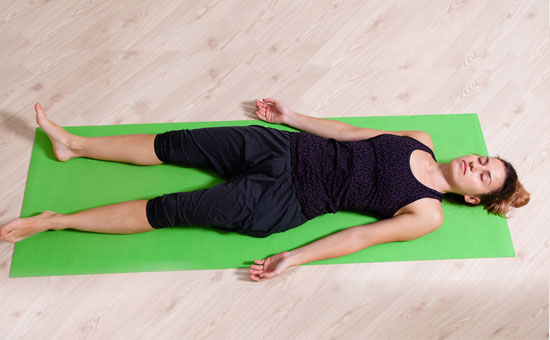Imagine What Happened When You Dont Eat Sugar for 240 Days

Learning to live without sugar, or limiting its intake, is a laudable aim for everybody. But for me, it was a compulsion.
Diabetes runs in my genes. Every member from my mother’s side including her has type-2 diabetes. It scared my gut.
I wanted to live longer. More importantly, I wanted to live a healthier life. So, as a 2021 year’s resolution, I decided to stop feeding my sweet tooth.
Love is in the air capítulo 148 en español completo tokyvideo castellano online
But from my family experience and research studies online, I had learned one thing crystal clear— when you quit sugar abruptly, the withdrawal symptoms can get as worse as giving up on drugs or smoking. That’s because sugar releases the feel-good hormones — dopamine and serotonin — in the brain, and the body needs some time to cope up without them.
So, my transition was a process, not a result.
The Beginning Phase of Divorcing Sugar
According to research, the mere sight of food, or contextual food signals, can make us feel hungry even when we do not have physiological hunger.
Taking my cue from this research, I pulled out all my grocery bills and checked every corner of my kitchen to determine how much sugar I already had. This gave me an estimation of my daily sugar intake.
Holy smokes! The inventory was as high as feeding me 200 gms of sugar every day for three months. Almost 500 percent more than permissible limits (36 gms/per day).
I wanted to scream in my defense that I don’t eat this much sugar. But, looking at the food items in my kitchen, I succumbed. Cereals, tortillas, ketchup, readymade vegetable broth/soups, salad dressing, frozen yogurts, crackers, mayonnaise, bread, and even diet chips — everything was loaded with excess sugar
I needed to get rid of them. Asap yet gradually!
So, I donated the unopened packets to the food bank. The rest I stored in my basement, I hardly go.
Out of sight is out of mind — this is what they say. It worked but only to some extent. I will get back to it in a while.
Instinctively, not forcefully, I could cut back on needless sweets and snacks when I wasn’t hungry, reducing my added sugar intake to one-third.
After that, I didn’t buy any more sugar products and decreased my consumption for the next three weeks before I quit it completely.
Sugar Sought Revenge; I Fought Back
Everything has a downside, even if it’s a good thing.
It seemed sugar sought revenge. My body began to sense unusual sensations. I became more cranky, irritable, and moody, especially in the first few days.
After two weeks of constantly checking, noting, and controlling sugar in every food item I ate, I was mentally exhausted. The sugar cravings were making me mad. I was constantly thinking about it. Sugar-challenge was not easy.
Ignoring sugar was like avoiding sunlight. No matter how much you prep, what you do, it will get in. So, I had to be smarter than the sugar.
Three weeks into the challenge, it was time for me to find sugar alternatives.
Here’s what I did next:
- Instead of rich calorie biscuits with coffee and (Indian) chai, locally sourced protein bars(devoid of artificial sweeteners) and homemade Ragi (Finger millet) cookies sweetened with dates
- Fruits, dry fruits, dehydrated fruit chips(from Costco) replaced sugar snacks
- Instead of jams, peanut-butters, and my darling “Nutella,” nut-butters, homemade apple sauces, and “berry-reduction” sauces (that served as spreads)
- Homemade oatmeal cookies and porridge replaced my favorite “Cinnamon crunch” cereals
- Roasted Lotus seeds snack instead of fried potato chips
- Fresh fruit skewers with Greek yogurt
- Sugar-free frozen yogurt replaced ice-creams
- Homemade smoothie or lassi (Blend fruit and/or vegetables with yogurt or unsweetened fortified soy/almond milk)
- Cut up vegetables with hummus or a yogurt-based dip such as tzatziki
And the list went on.
Sugar Finally Set Me Free
After three months, I started feeling better. No longer a push and pull. My temptations gradually subsided. Binge-eating almost stopped.
I realized how easily sugar tricked me into thinking I was hungry even when I was not.
Here are some of the benefits I reaped from my “no sugar challenge.”
I. Kept sickness at bay
I can't remember when was the last time I took a day off from work due to cough, cold, or fever.
Research states that “when you consume excessive sugar, it wreaks havoc on your immune system. However, when you quit consuming sugar, your immune system can work as it was intended. Also, when you quit consuming sugar, you will notice that you are healthier and are less likely to acquire a cold or flu bug.”
I am the live example to vouch for this fact.
II. Felt light as a feather
Moods and emotions depend on food. I agree that eating a birthday cake loaded with whipped cream makes you feel happy. But that happiness is short-lived.
After quitting sugar, my moods remained stable for a long time. My brain functions improved, and I felt less depressed at everyday problems like road rages, insults, unsolicited advice, conflicts, arguments, etc.
According to the study, males who eat more than 67 grams of sugar per day have a higher risk of depression than those who eat less than 40 grams per day.
So, sugar is directly proportional to brain functions and emotions.
III. Decreased chances of diabetes
I succeeded in my goal. My sugar levels decreased drastically. My doctor said I almost nullified the chances of getting type 2 diabetes.
He said, “Sugar raises our chances of getting diabetic since elevated blood sugar levels are a major factor in diabetes. Consuming an excessive amount of sugar raises blood sugar levels. High blood sugar levels can lead to insulin resistance, wreaking havoc on your liver, pancreas, and other organs over time. While numerous variables contribute to diabetes, one of the primary culprits is sugar.”
IV. Increased dental hygiene
I had a long war with my tooth in the past. Every month I had to visit a dentist either due to sensitivity or a toothache. But now, my dental visits go as planned — once every six months.
“No matter how much you care for your teeth, brushing it twice a day, using an anticavity mouth rinse and floss, nothing can prolong your teeth’s life as limiting your sugar intake does. Sugar is a significant cofactor in the formation of cavities because it interacts with microorganisms in your mouth to create the acid that causes decay.” said my dentist.
V. Baby sleep
It’s not that I stayed awake at night before giving up sugar. But now, I sleep like a baby. Seven hours straight. No distractions. No tossing and turning. I wake up exactly in the same position I slept in.
When you quit sugar, your hormones, particularly those essential for good, restful sleep, work better.
Give up sugar for two weeks and see the difference in your sleep quality. When you experience great outcomes from short-term adjustments, you will be inspired to make the long-term changes required for true transformation.
VI. Zero binge eating
Let me admit it — I have a penchant for carb-heavy dishes. So, when I’m not eating desserts, I’m probably craving croissants, pizza, oil-laden Indian parathas. Surprisingly, my junk food desires were at an all-time low after four weeks into my sugar fast.
I conducted some research and discovered that foods heavy in sugar tend to leave behind significant cravings due to the feel-good chemicals such as serotonin, dopamine, and endorphins that they produce in the body. So no one can eat just one — you’ll end up wanting more because you like how it feels.
Sugar Changed Me
Restaurant menus don’t have ingredients listed, so I had to stop take-out deliveries.
But whenever I ate, I opted for salads because I could easily control the components by asking for olive oil and vinegar dressing on the side.
I also stopped eating sandwiches, samosas, fritters, and many other mouth-watering delicacies that would make me a conscious eater and a dump yard of sugar.
My shopping preferences changed too. I keenly read the contents and nutrients facts for every food item I bought.
I also discovered a secret most food companies don’t want us to know — Sugar disguises different names like concentrates of fruit juice, molasses, maple syrup, honey, maltose, agave nectar, and many more.
The next thing was tough!
Social gatherings don’t give a f*ck about your sugar challenge.
They force you till you succumb.
So, I limited going for Saturday nights and weekend parties. But I couldn’t deny social gatherings for a long time. I tried lying to their face, and it worked (hopefully they’re not reading this) — “I am some medications that prevent me from consuming sugar.”
I also faked toothache, so I don’t have to eat anything with added sugar.
Last Thoughts
Sugar is your enemy. It limits your life span.
Sugar is harmful, no matter how hard you justify its consumption.
But considering its presence in almost everything, you need to find some alternatives. If you can successfully do that, you can trick your brain into giving up sugar very easily.
Everything comes at a price, and health is the most expensive thing to buy. You’ll have to sacrifice some cakes, candies, pies, and bread if you wish to extend your life span or live without interruptions.
“I am sorry to break it to you, but you've been eating junk in the name of health,” said my nutritionist friend from McGill University, as I was frugally drizzling the dressing over my salad.
I gave him a furious look, wanting to squeeze the entire dressing bottle over his crisp white shirt. “If you don’t consider this salad and dressing healthy, what is it?” I asked arrogantly.
“It’s easy to get confused about what’s healthy because of the clever food packaging and marketing,” he answered with concerns.
Whether you’re health-conscious or not, there’re certain foods you must avoid at all costs because of the chronic health damage they bring with them. But if you did, then the food companies would go bankrupt. He added.
Then, randomly he pointed out nine unhealthy foods that most of us label “healthy alternative.”
So, allow me to share the same with you so that you stay away from them the next time you go grocery shopping or to a restaurant.

Here is How Yoga Nidra Practice Benefits Mind & Body
- Yoga Nidra is known to have tremendous amounts of benefits. This form of yoga, also known as sleep yoga.

China’s Tianjin orders more testing of 14 million residents
- The northern Chinese city of Tianjin ordered a second round of COVID-19 testing of all 14 million residents Wednesday following the discovery of 97 cases

Omicron explosion spurs nationwide breakdown of services
- Ambulances in Kansas speed toward hospitals then suddenly change direction because hospitals are full. Employee shortages in New York

Learn How to Perform Vakrasana (Twisted Pose)?
- The Vajrayana term is derived from combining two words, Vakra, which means "twisted," and the asana that means "yoga posture."